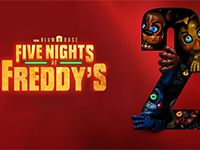
Well, there is a game here. There is a disk that you can put into your console, start up, and then interact with. In this sense, there is a game. However, around the time you press start and begin the training mission, the duality of the game is revealed.
Yes, there is a game here, but it’s muddled down with several inescapable flaws that I honestly just wasn't expecting.
Alpha Protocol is an exploration of the seedy world of espionage and spy tactics. You take on the role of Michael Thorton, who is trying to discover who is behind an attack on a jetliner while also trying to find out more about the shadowy people you work for. With multiple paths and a host of characters to interact with, you're going to have some very unique experiences with this title. The comparisons you are most likely to hear will revolve around Mass Effect. To be honest though, I was expecting, perhaps unfairly, Mass Effect by way of Jason Bourne with a little bit of James Bond thrown in for good measure. The story definitely reinforces the notion that you are in an "espionage RPG" though, with all sorts of double and triple crosses and an overarching narrative that does a pretty good job of drawing you in; Even though the voice acting is downright painful at times. There's a lot going on in this game, so let's get right into one of the better aspects.
Customization is a highlight of the game. You'll nab experience points doing pretty much anything - disabling cameras through hacking, disabling alarms through hacking, finishing objectives, picking door locks, etc. You'll be able to dump these points into a pretty nice skill tree that allows you to govern your play style and play the game as you'd like. Some of my issues with this feature though are that it can be really easy to exploit. Upgrade stealth skills enough and you become an invisible assassin able to slow down time to kill a foe right in front of another foe who will simply not recognize that someone is being murdered in front of their glazed over eyes.
The AI in this game is all at once brilliant, brutally stupid and suicidal. They will band together, standing together in one spot, firing off every bit of ammo they have at you. Or perhaps they will get stuck running in circles, clearly scared witless from your ability to not hit them. The bosses are a different story all together though. They are somewhat indestructible, or it seems that way at times, and there's a good chance you'll die just trying to discover where the hail storm of bullets is coming from at any given moment.
Weapons and armor share this level of customization as well. Our hero is able to carry two weapons but a host of gadgets along for the missions. Being able to really tailor the weapons for each mission can also lend some replay value.
Combat is definitely a mixed bag, especially in the beginning of the game. The "tutorial" of the game showcases that special agent Thorton has apparently never held a gun before and is not familiar with the basic aim and shoot functionality of these magical things armaments. You will most assuredly empty several rounds into thin air even though you clearly had a headshot in view. I understand that you need to raise points in whatever weapon you want to use to be effective, but I at least want the protagonist to be somewhat competent as the game begins.
My advice is to not bother with any other weapon outside of the assault rifles. The pistol's "hold the reticule over the enemy until it actually indicated you can hit them" is a little rough, and the sub machine gun's "bullet blanket over the immediate vicinity and pray for a miracle" technique is that much rougher. That isn't to say that the run-and-gun portions of the game can't be fun. They can be.
Sometimes.
Thorton is also equipped with Kenpo-fused CQC techniques for when the enemy gets a little close. I actually went through an entire stage just kicking everyone in the face. Taking bullets to the chest and getting close enough to end it in a few well placed kicks. It became infinitely more satisfying than trying to have these intense firefights that eventually boiled down into who got lucky first, or how often my abilities would cool down so that I could use them again.
Your most dangerous weapon however might be the power of conversation, or the "Dynamic Stance System" as Obsidian puts it. You have three separate stances you can take: Aggressive, Professional, and Suave. Though sometimes those stances will not always be available. You only have a handful of seconds to decide on a stance, or allow it to default on the stance that is selected.
You're going to do a nice chunk of talking in Alpha Protocol. What is admirable is that this will shape and define your gameplay experience. Especially if you decide to start offing people because you think they are not going to be useful, or reaching for a gun, or whatever the case may be. Those characters have their own stories and plotlines to follow, and it is worth a playthrough or two to see what happens if you take these different paths.
Considering that Obsidian is going to be working on the next game in the Fallout series, Fallout: New Vegas, I'm hoping that all lessons learned here with this fun, but flawed, title will translate well to those apocalyptic wastelands. Though you would think with the fairly unremarkable character models and environments that they were practicing for Fallout with this game.
There is some great stuff to see in this game, but you're going to have to decide whether it's worth it after the first time you see an enemy with no graphical texture run at you at full speed as you empty a clip into the space around his body. If you're curious, rent the title and stumble and sneak your way through it in a weekend.
Alpha Protocol was developed by Obsidian Entertainment and published by Sega for the XBox 360 and PlayStation 3 on June 1st and retails for $59.99. A copy of the game was provided by the publisher for review purposes.















































